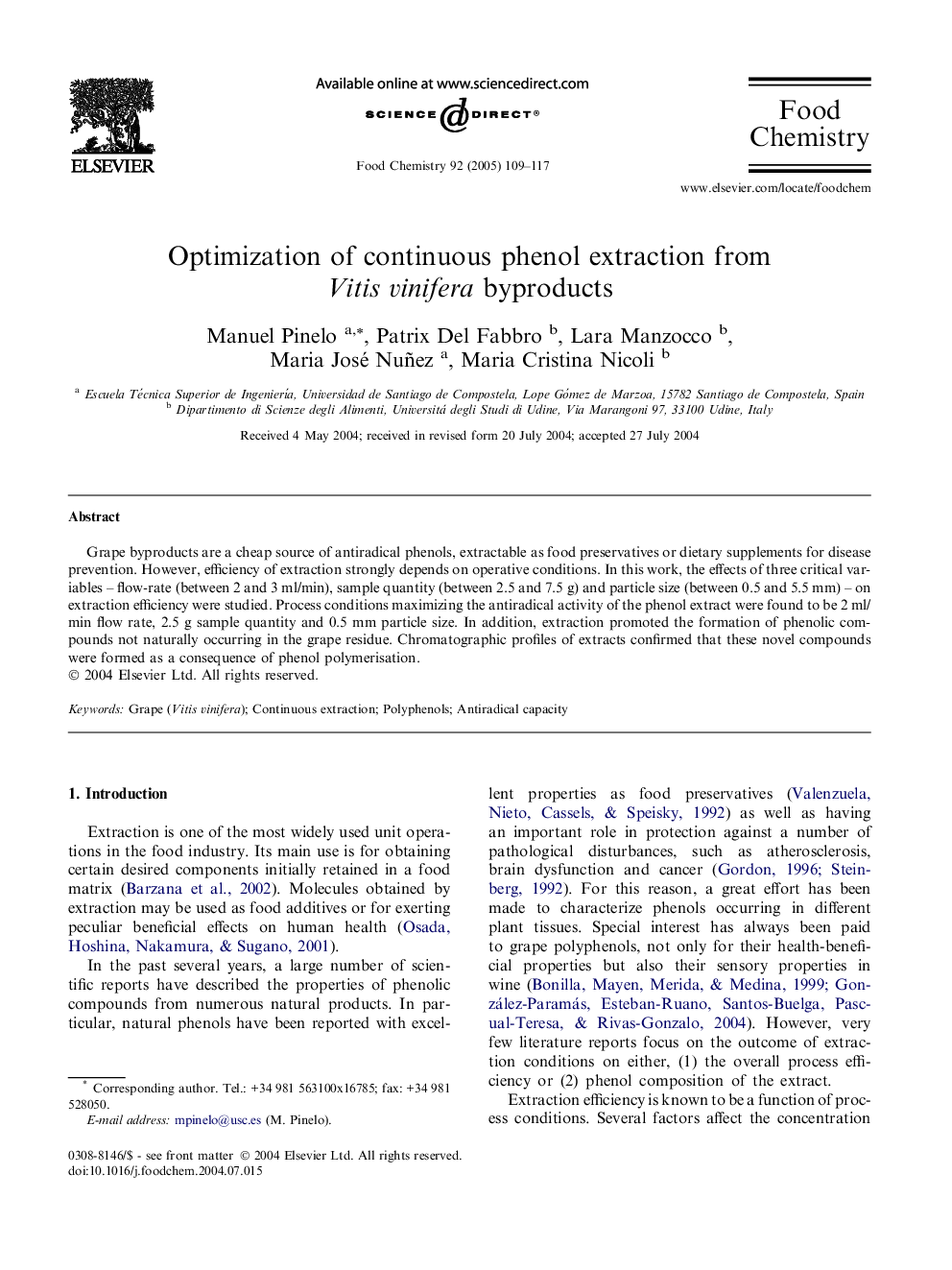| Article ID | Journal | Published Year | Pages | File Type |
|---|---|---|---|---|
| 10544396 | Food Chemistry | 2005 | 9 Pages |
Abstract
Grape byproducts are a cheap source of antiradical phenols, extractable as food preservatives or dietary supplements for disease prevention. However, efficiency of extraction strongly depends on operative conditions. In this work, the effects of three critical variables - flow-rate (between 2 and 3 ml/min), sample quantity (between 2.5 and 7.5 g) and particle size (between 0.5 and 5.5 mm) - on extraction efficiency were studied. Process conditions maximizing the antiradical activity of the phenol extract were found to be 2 ml/min flow rate, 2.5 g sample quantity and 0.5 mm particle size. In addition, extraction promoted the formation of phenolic compounds not naturally occurring in the grape residue. Chromatographic profiles of extracts confirmed that these novel compounds were formed as a consequence of phenol polymerisation.
Related Topics
Physical Sciences and Engineering
Chemistry
Analytical Chemistry
Authors
Manuel Pinelo, Patrix Del Fabbro, Lara Manzocco, Maria José Nuñez, Maria Cristina Nicoli,
